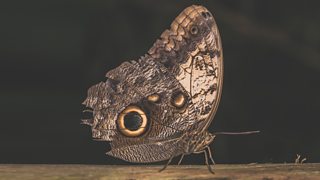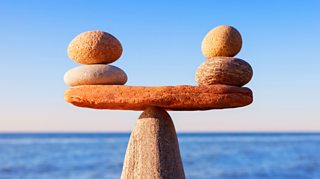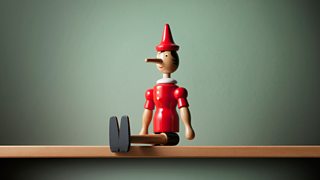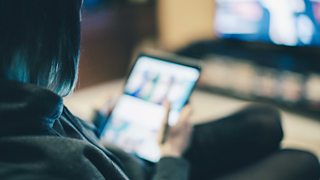Did a drunken brawl cause Brexit? And four other big questions.
Is there a single moment that changed the entire direction of your life? Perhaps you can identify a one-off encounter, decision, or argument that set in motion a series of unintended consequences and made you the person you are today? It’s always tempting to imagine what we would be like if we hadn’t experienced a ‘Sliding Doors’ moment.
But what if you attempted the same exercise on a much, much bigger scale? Radio 4’s Political Butterfly Effect attempts to ask whether you can trace major issues affecting our modern world to a single small incident that unexpectedly spiralled out of control.
Here are five big questions that we posed - which the show attempts to answer with a bit of help from people were there at the time of each incident.
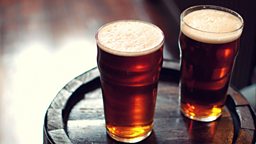
-
![]()
The Political Butterfly Effect
Did a drunken brawl in the House of Commons set off a chain of events that led the UK to vote for Brexit?
1. Did a drunken brawl cause Brexit?
In 2012 a backbench Labour MP called Eric Joyce was enjoying a night of heavy drinking in the House of Commons. Late in the evening he declared that there were “too many effing Tories” in the bar and started a mass brawl, headbutting and punching fellow politicians before being restrained by four policemen who ultimately stuck him in the cells. This incident involving an MP being bad led to an internal Labour selection scandal, which in turn prompted a reform of the party, choosing a new leader. This aided the election of the lifelong Eurosceptic Jeremy Corbyn as Labour leader - which some Remain campaigners blame for Brexit.
Joyce said he is aware of the butterfly effect theory: “I get it all the time. It's my great contribution to UK politics, to have been this terrible, depressing and destructive moment and I suppose if people try to keep their own narrative to understand how these things eventuated and how we ended up where we are then it's quite a tidy explanation.”
“When I reflect on it, I do think perhaps it's not too far to imagine a wee analogy you know with me completely disillusioned, lashing out pointlessly and self-harming and harming other people. With that eventually happening to the Labour Party and now with Brexit to the British public as a whole.”
Why anger goes viral
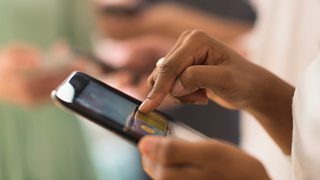
Aleks Krotoski, Dr Ryan Martin and Pankaj Mishra discuss how anger works online.
2. Did the Black Panthers change the National Rifle Association?
Back in 1960s California a group of individuals asserted their right to carry firearms in public after rediscovering a historic shooting law. So far, so typical for the USA. What was different was that these people were members of an activist group called the Black Panthers - and the sight of African Americans carrying guns in public prompted a swift reaction from politicians.
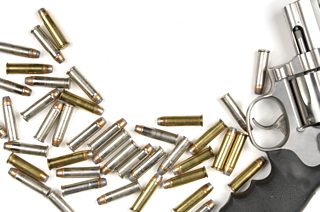
The National Rifle Association backed a new law restricting the open carry of guns in California, as did the state’s Republican governor - a man called Ronald Reagan.
Fifteen years later the NRA was campaigning for the right to bear arms - and Reagan was President of the USA, pledging to “never disarm any American who seeks to protect his or her family from fear and harm”. How did events escalate out of control?
“If you tell the average American that they can't have something they're going to go out and get one,” said Dave Workman, a former director of the NRA.
3. Did a tragic boat accident fuel the climate crisis?
was a five year old Cuban child in 1999 when his mother fled with him on a boat in a bid to make it across the open sea to the USA. Their vessel capsized in a tragic accident and set off a chain of events - a custody battle, a political dispute in Florida, a contested ballot in the state - that Al Gore’s team blame for losing the 2000 Presidential election.
How would the world have looked if this one tragic event hadn’t set in motion a chain of events and Gore - an early advocate of action on climate change - had been elected?
“I think the world would be in an infinitely better place on climate change if Gore had won. I think it would have been one of his top priorities,” said his adviser Bob Shrum.
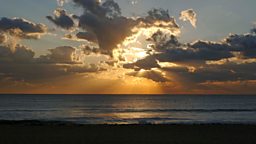
4. Did Bovril keep the UK out of the euro?
Bovril began life in the 19th century as Johnston's Fluid Beef - but by the 1970s it was a bloated company. That’s when corporate raider Sir James Goldsmith bought the business and asset stripped it, making him a small fortune, which he turned into a much bigger fortune. He would then use this bigger fortune to build the early Eurosceptic movement in Britain and campaign to keep the UK out of the Euro, in a cause backed to this day by his son, the Tory MP Zac Goldsmith.
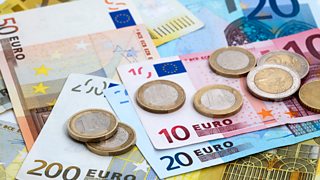
“I would say that we were pivotal in changing the narrative around a referendum on the euro,” said Adrian Hilton, who stood for the Referendum party - a political movement ultimately backed by the money Goldsmith had made from Bovril.
5. Did your holiday photos spread global chaos?
Facebook’s news feed was announced with little fanfare in 2006. It was an attempt, according to the new social network’s boss Mark Zuckerberg, to ensure you never missed your friend’s holiday snaps. But within a few years it had become an algorithm-driven information powerhouse, upending the news world and being held up as a key driving force behind global political upheaval.
How did it spiral out of control? “The key thing to understand was that the early design of Facebook was indeed benign. It was not until the business model shifted from just bringing in new users, to expanding the amount of time each user spent on the site every day, that things started to go really wrong,” said early Facebook investor Roger NcNamee.
What your phone is doing to keep you glued

Former Google employee James Williams talks about how your smartphone catches and keeps your attention.
More from Radio 4
-
![]()
The Political Butterfly Effect
Did a drunken brawl in the House of Commons set off a chain of events that led the UK to vote for Brexit?
-
![]()
Why it’s strong to be ambivalent
In an age of certainty, of assertions without facts, why not sit on the fence.
-
![]()
How to tell if someone is lying to you
There might just be a simple trick to help us spot the fibbers amongst us.
-
![]()
What does obsession look like in the digital age?
Does having social media at our finger tips make obsessive behaviours easier?
